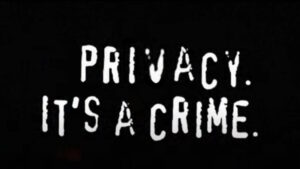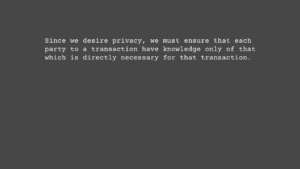In response to concerning anti-user practices, renowned YouTube creator and entrepreneur, Louis Rossmann, launches the Consumer Action Taskforce Wiki in an effort to combat corporate overreach.
Rossmann is known for his repair tutorials, right-to-repair advocacy and outspoken critiques of bad corporate practices, having built a reputation as a consumer-rights advocate through his Rossmann Repair Group and his YouTube channel, which boasts over 2.1 million subscribers.
Now, Rossmann has turned his attention to another wave of anti-consumer trends that threaten ownership, fairness and common sense in the digital age.
A Response to Escalating Anti-user & Anti-ownership Trends
The Consumer Action Taskforce (CAT) Wiki arrives at a critical moment. Across industries, companies are rolling out changes that erode consumer ownership and privacy rights, often quietly and without accountability. One glaring example is Netflix’s stream quality controversy.
The streaming giant defaults new users into its premium 4K plan, charging higher rates while failing to disclose intentional restrictions on accessing high-quality content. Prerequisites for 4K streaming—such as specific hardware or internet conditions—are buried or omitted entirely from terms of service, leaving subscribers confused and underserved despite paying a premium price. This lack of transparency is exactly the kind of exploitation Rossmann aims to spotlight.
Amazon’s Kindle platform offers another stark case. Starting February 26, 2025, Kindle users will no longer be able to download their purchased e-books to their computers via the “download and transfer via USB” feature—a functionality that has existed since the Kindle’s early days over a decade ago.
This change strips consumers of a basic ownership right: the ability to keep a personal copy of what they’ve bought. Worse still, Amazon has claimed the right to retroactively revise e-books, meaning a book purchased today could be altered—or entirely rewritten—years later without the buyer’s consent. Imagine purchasing a novel, setting it aside, and returning to find a completely different story.
These moves signal a broader shift toward anti-ownership practices that Rossmann and his team refuse to let go unchallenged.
Speaking about user-friendly pre-purchase disclaimers, Rossmann said: “wouldn’t it be great if you were about to buy this particular refrigerator, that you had a browser plugin something like ublock origin that would say ‘alert, voids warranty based on illegal arbitration clauses and has random failures.’” Rossmann added that this snippet of information would link to a wiki page that’s “well-cited and community sourced” with citations and “all the proof that’s necessary” for the consumer to make an informed decision.
What Is the Consumer Action Taskforce Wiki?
The Consumer Action Taskforce Wiki is an open, collaborative platform designed to document and counter growing anti-consumer practices, corporate overreach and exploitation.
Unlike traditional consumer protection outlets that focus on faulty equipment and appliances, this initiative targets modern abuses surrounding digital ownership restrictions, invasions of privacy, deceptive pricing schemes often hidden in the fine print, and other reprehensible practices which often slip under the radar of mainstream media and supposed review-sites.
In essence, this is a decentralised, ground-up effort to stick it to corporations who no longer care about delivering an excellent service, but are instead focused on fleecing their own users and deteriorating standards, apparently using Orwell’s 1984 as a personal manifesto.
The wiki invites contributions from anyone passionate about consumer rights, requiring no technical expertise or even an account to edit. Its mission is twofold: to create a searchable archive of specific anti-consumer incidents—like Netflix’s hidden limits or Amazon’s Kindle rollback—and to educate the public on how these practices erode their rights. Articles are backed by factual citations, ensuring credibility, while a moderation team works to squash misinformation and keep the resource reliable.
Rossmann’s call to action does not aim to gather funds, but instead asks users to donate their time to building the wiki.
This is not a problem I can solve with money, it is only a problem that I can solve with all of you, with people who are contributing on a regular basis.
A Call to Action
The launch comes amidst increasing frustration with corporate overreach. Rossmann, who has long rallied against companies restricting repair rights, sees the wiki as an extension of this advocacy— a means for the public to protect itself from corporate malpractice and overreach.
Consumers, journalists, and normal everyday users are encouraged to visit the wiki, explore the library of documented cases, and contribute their own findings.
If you found this article useful, consider sharing it.


